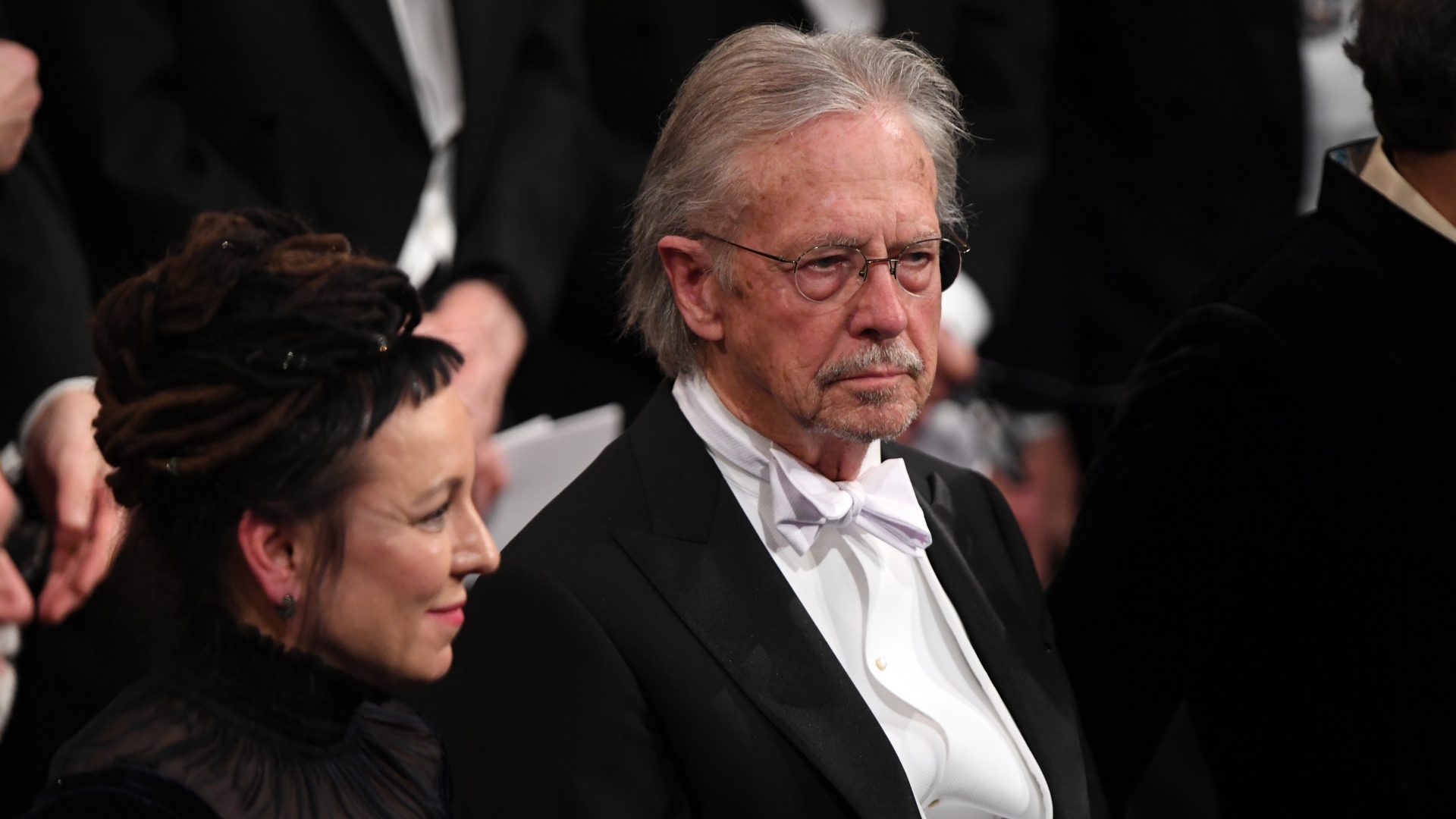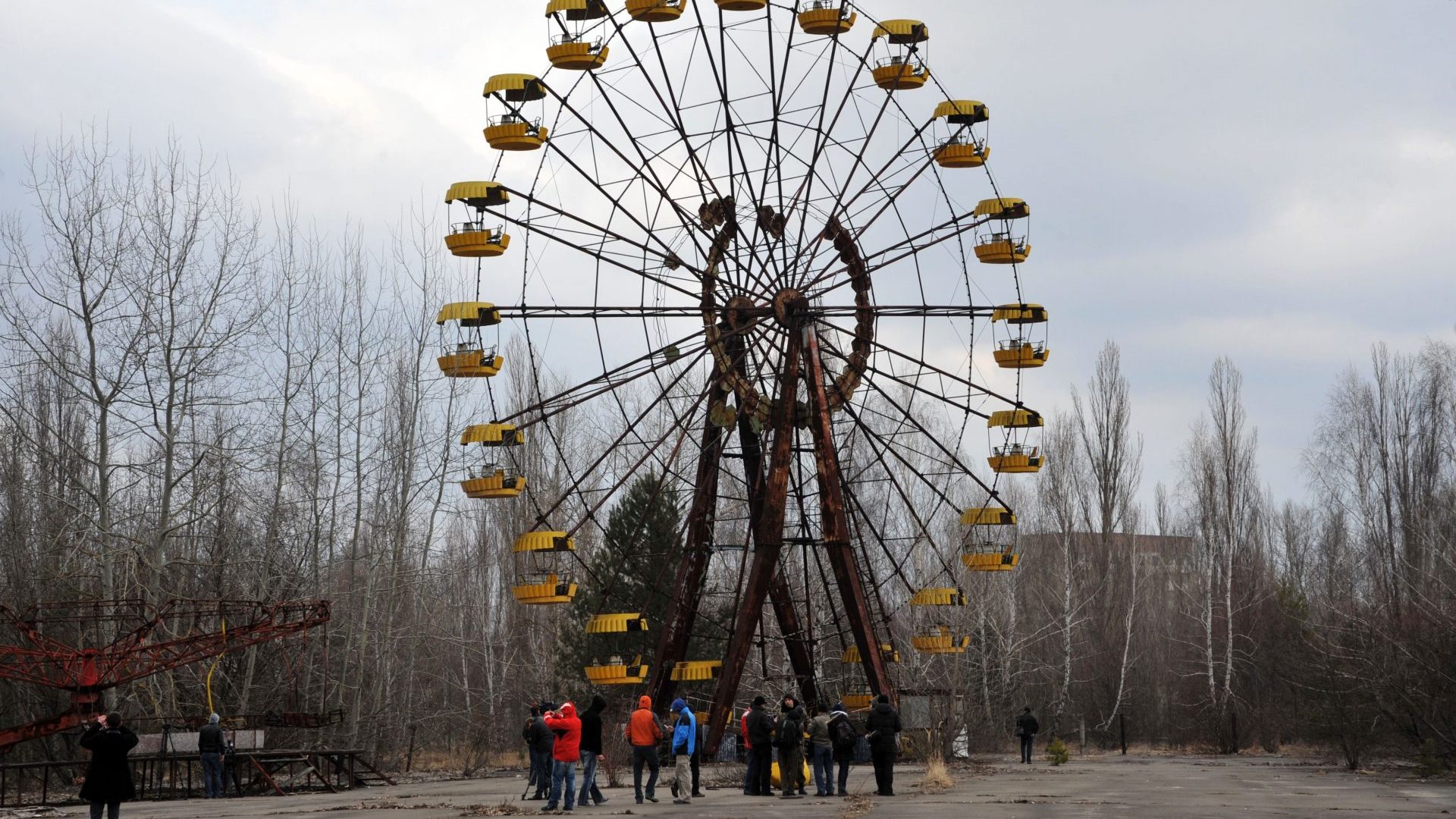Peter Handke is an Austrian author. One of the best-known writers in the German-speaking world, he has won many international awards, including the Ibsen Award and the Nobel Prize. But, for over 30 years, he has been at the forefront of defending Serbia and its conduct in the wars in Bosnia and Herzegovina and Kosovo. He has continuously supported Serbian war criminals, including Slobodan Milošević, of whom he wrote that: “he deserves respect”. Awarding him the Nobel Prize in Literature in 2019 sparked widespread anger and disappointment among the families of victims of the wars in Bosnia and in Kosovo as well as among the international community.
A few weeks ago, we performed our play The Return of Karl May at the Dortmund theatre in Germany, and in one scene, we talk about Peter Handke’s opinion of the wars in the former Yugoslavia and his support for the Butcher of the Balkans, Slobodan Milošević. After the play, a group of drama students told us that they study Handke in their course, but only as an author of important plays and they had not known there was anything contentious in his literary works or his public opinions. They seemed surprised and a little revolted that when Handke was taught in their theatre department, nothing was addressed beyond what he had written in his plays – and naturally, nothing outside of his “glorious” biography as a renowned writer who, in 2019, had won the Nobel prize for literature. I was not very surprised by the students’ lack of knowledge. But what does surprise me is the fact that Peter Handke’s plays continue to be performed in German theatres while entirely ignoring the other half of his ‘portrait’, – his controversial political views. In fact, this very month, Handke’s play Zdeněk Adamec is being staged at the prestigious Burgtheater in Vienna.
You might say: “well, what’s wrong with that?”. And this argument: “what’s wrong with that” is a common idea among those who have read his books, as well as many intellectuals and writers. This includes another Nobelist and Austrian, Elfriede Jelinek, who wrote in Handke’s defence: “Whoever prevents an artist from working commits a crime not only against the poet, but against the entire public.” Many other European writers and intellectuals have justified Handke’s political views, noting his “literary genius” or right to“freedom of expression”.
Handke openly supported Milošević, and denied and questioned the crimes committed in the former Yugoslavia during the 1990s. In his books, and the public positions he took, he fabricated and subverted the facts of those wars. Handke’s political interventions, which he often called “literature”, smell of fascism. At the burial of the criminal Milošević, Handke told the crowd of mourners, thirsty for blood, “I do not know the truth,” and therefore he was, “here close to Milošević, close to Serbia”. Handke even compared the ‘suffering’ of the Serbs with the suffering of the Jews at the time of the Nazis. In his book, A Journey to the Rivers: Justice for Serbia, Handke wrote: “all too many of the reporters on Bosnia and on the war there … are not only proud chroniclers, but false ones.” In addition to denying Srebrenica, he publically suggested that the Bosnians of Sarajevo had massacred themselves and then blamed it on the Serbs. The list of the ‘literary’ lunacy of Handke is very long. He is a genocide denier par exellence.
And so, the logical question is as follows: How should we behave, and what should we do, with the artistic work of Peter Handke, knowing this side of him, this dark side, to which he has contributed himself through his political interventions, and his ‘elegiac mourning’ in defence of Serbia.
The premiere of Handke’s play at the Burgtheater will take place on 2nd June, without any accompanying debate, and without background information for the uninformed Austrian audience, who typically lack knowledge of the wars of the former Yugoslavia in the 90s. The day after this premiere in Vienna, there will be a theatre performance in Pristina of my play, The Handke Project, which focuses on Peter Handke not as a creative artist, but the other side of him, the genocide denier. In The Handke Project we try to understand some fundamental questions, among which are how we as artists can remain committed to artistic freedom, while also being conscious of the responsibility we have to the audience. What we are trying to convey to the audience is exactly what Günther Grass was talking about when he said he had a problem with the idea that writers should be granted with “a kind of bonus for genius which excuses their partisanship for the worst and most dangerous nonsense.”
Our performance of The Handke Project is modest, and it would be difficult for our play to be included in the programme of the most mainstream theatres in Germany. Nonetheless, for us it is important to oppose ‘fascism converted into literature’ as best we can. It is also important for us to oppose European hypocrisy, double standards and ‘selective empathy’ for human suffering. By “we” I am referring to all of us who believe that someone cannot be a “good writer” if they are also an “insensitive monster” as a person.
So, what to do with Peter Handke’s plays? Should they be banned? Should they be forgotten? I believe neither. They should be staged by anyone who wishes to do so, but if they are performed, without any context, and without being accompanied by any debate, then this is the continuation of genocide by other means, to paraphrase Clausewitz. It is essential that the audience watching Handke’s plays understands his complete portrait. And when students of theatre in Dortmund, or any other students, study Handke’s plays, they should also learn and study not just the Handke of “Offending the Audience”, but also, the Handke who was nominated as “idiot of the year” by Salman Rushdie.
The debate about Handke and his opinions also demonstrates the extent of the hypocrisy in European cultural institutions. Recently, we have seen many of these institutions demanding that Russian artists publicly declare their opposition to the war in Ukraine. A red line has been drawn around those artists who, in one way or another, support Putin and the war, and in some cases, artists have been excluded and marginalised for expressing no viewpoint, or for being too fearful to dare to make their views public. These are double standards. In fact, they expose the monumental dimensions of European arrogance. Furthermore, they are a sign of fear – fear of Russia and Putin. While at the same time, they did not fear the criminal Milošević, and his crimes, which were perceived as a battle between some “barbarian tribes over there in the Balkans”, with little potential to upset their European comfort.
In his book about his mother, there is an interesting passage:
“… it often happened that the only bowl in the house transformed at night into a chamber pot, and the next day, that’s where the bread was baked. Of course, the bowl was washed first with boiling water, and it was clean, but just the description of the process incites disgust. They defecated in the same pot from which they ate.”
Handke did precisely this. On writer’s parchment he wrote brilliant literature, but at night he shat on that same paper. And then the next day, after cleaning the shit off the paper, he continued to write literature. Yes, this is something that incites disgust.
And thus it is with his plays when they are performed on stage. They incite disgust – because they remind us of the “idiot of the year” and his parchment of shit!
Jeton Neziraj is a playwright based in Kosovo. The Handke Project is touring Europe from June 2.



